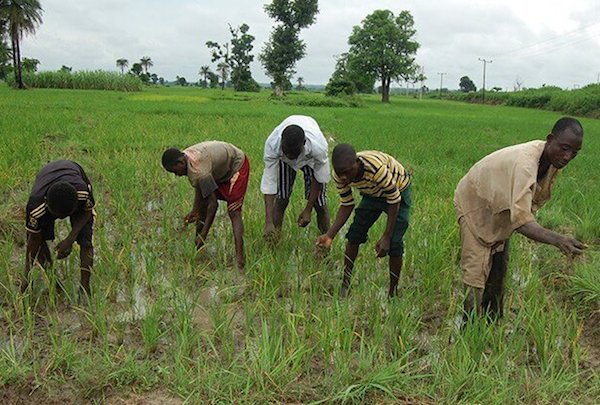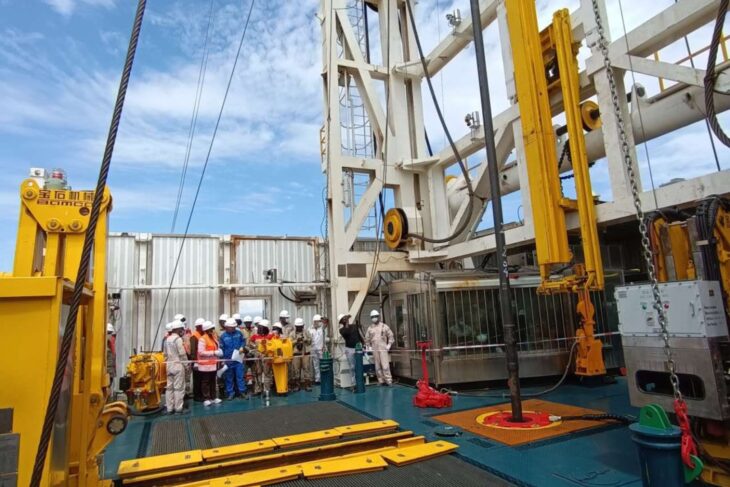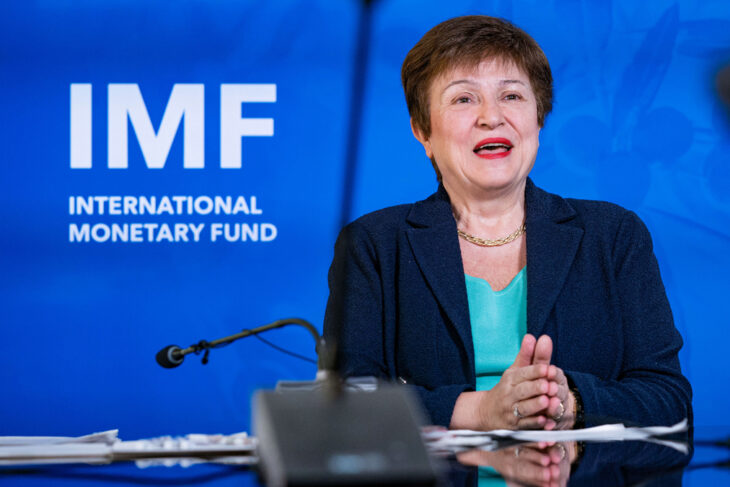
The Nigeria Incentive-Based Risk Sharing System for Agricultural Lending (NIRSAL Plc) has completed training and mentorship programmes for additional 780 farmers and other agricultural value chain actors across the country in its ongoing efforts to improve the yield, capacity and general productivity of Nigerian farmers.
According to NIRSAL’s spokesperson, Anne Ihugba, the programmes, which held in the six geo-political zones, were a continuation of efforts targeted at achieving a key component of NIRSAL PLc’s mandate: de-risking of the agricultural value chain in order to encourage more investment in agribusiness by the financial sector.
‘The series of training sessions under the NIRSAL Strategic Business Support Services (SBSS) is part of NIRSAL Plc’s Technical Assistance pillar aimed at building the capacity of value chain actors for improved production, handling, processing and marketing of agricultural commodities.
‘The sessions focused on ten Commodities of Interest (COI) that have ecological and economic advantages in each region. The commodities include Rice, Ginger, Maize, Fresh Fruit & Vegetables (FFV), Cassava, Beans, Aquaculture, Oil Palm, Livestock and Cotton.
‘During the NIRSAL SBSS sessions, farmers as well as input suppliers, processors, transporters, exporters, and traders of agricultural products were trained on modern, business-oriented pre-upstream, upstream, midstream and downstream operations with a view to achieving the micro & macroeconomic effects of farmer income enhancement and Gross Domestic Product (GDP) increase
The NIRSAL SBSS programme identified farmers and value chain actors most in need of training, assessed value chain gaps, designed intervention approaches and implemented same; the main approach being a four-week long mentorship programme comprising in-class and field sessions”, she explained.
She added that the choice of the selected commodities was informed by the NIRSAL Agricultural Commodity Ecological Area (ACEA) map which it developed and obtained validation for from relevant research institutes. NIRSAL Plc believes that ACEA-compliant agricultural investments hold the highest chances for success in terms of production and sale.
‘Accordingly, in the North-Central, the Benue State SBSS focused on Rice, Ginger and Maize, which are NIRSAL COIs that possess the highest factor productivity in the state.
‘In the Federal Capital Territory (FCT), the SBSS trained operators in the FFV Value Chain. The rationale for selecting FFV is hinged on the FCT’s urban consumer market. The training sessions took place in Kuje, Nyanya, Mararaba, Apo, Lugbe, the Municipal, Gwagwalada, Dei-Dei, and Abaji.
‘In the South-South, the Rivers State SBSS focused on FFVs as well, in addition to Aquaculture. Stakeholders were trained in Rumuola, Wenpey, Aluu, Enekah, Elekahia, Eleme, Mgbuoba, Elelenwo, Igwuruta, Eliozu, and Rumuodomaya.
‘In the South-East, the focus was on the Rice and Cassava Value Chains. Rice, a commodity produced in every Nigerian state, was also under focus in the Rivers State SBSS exercise.
‘Typical of states with large urban areas and high volumes of rainfall, another FFVs state is Lagos. Stakeholders were met in the Kosofe – Ikorodu, Iyana – Iba, and the Lekki – Ajah axes. In Ekiti State, across Ado-Ekiti, Orin Ekiti, Ijero, and Ogbese, Maize, Fish, Rice, and Oil Palm stakeholders, respectively, were met,’ Ihugba added.
The nationwide SBSS exercise continued in the North-East with Adamawa and Taraba States for Integrated Livestock and Beans Value Chain actors, respectively.
The exercise culminated in Kaduna and Katsina States, both with comparative advantage in the production of high-quality, in-demand Ginger and Cotton, respectively. Value chain actors received training on the production and packaging, as well as on the servicing of not only the domestic market but also on ways to take advantage of an export market with huge economic potentials for Nigeria.
Since its inception, NIRSAL Plc has provided training on Good Agronomic Practices to over 700,000 farmers and trained over 2,600 mid-management and Agric desk officers of commercial banks.













